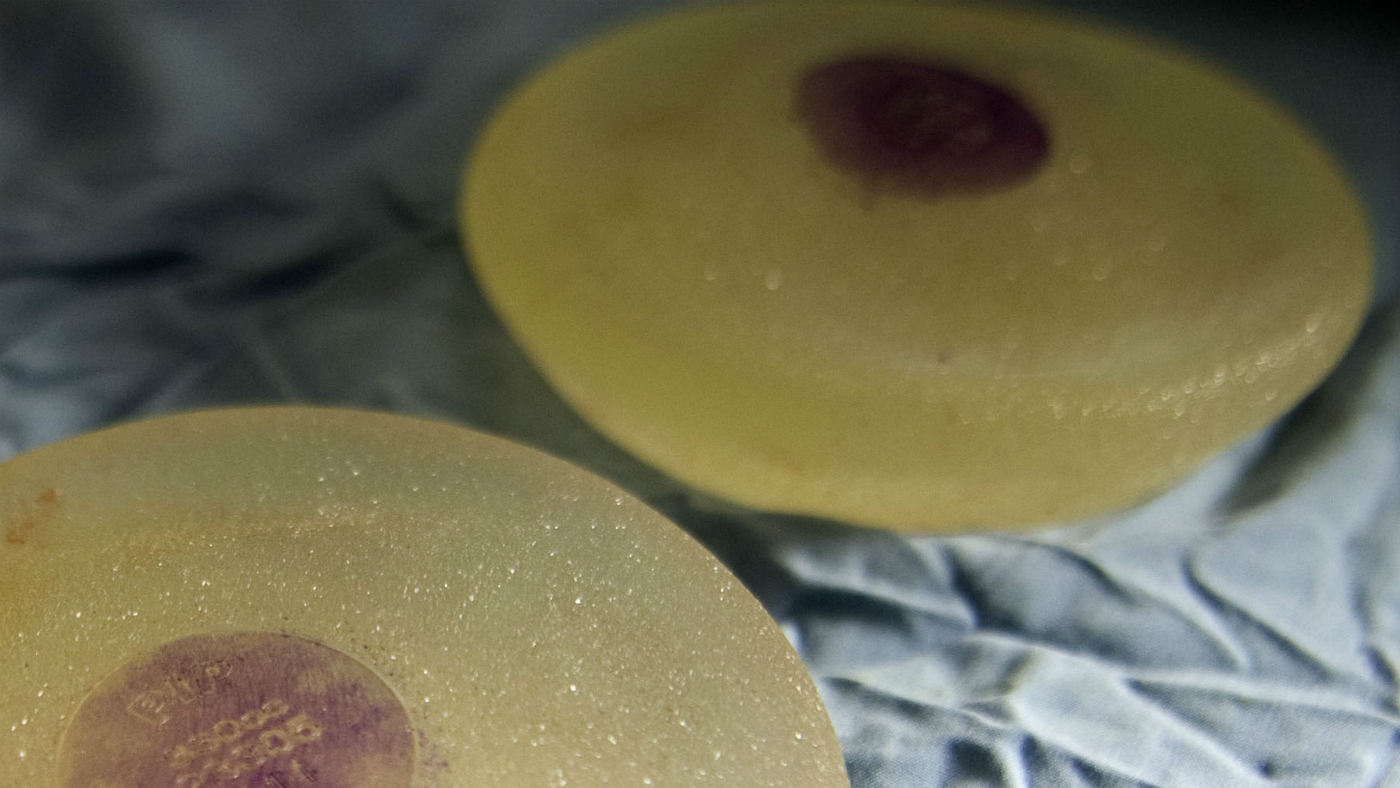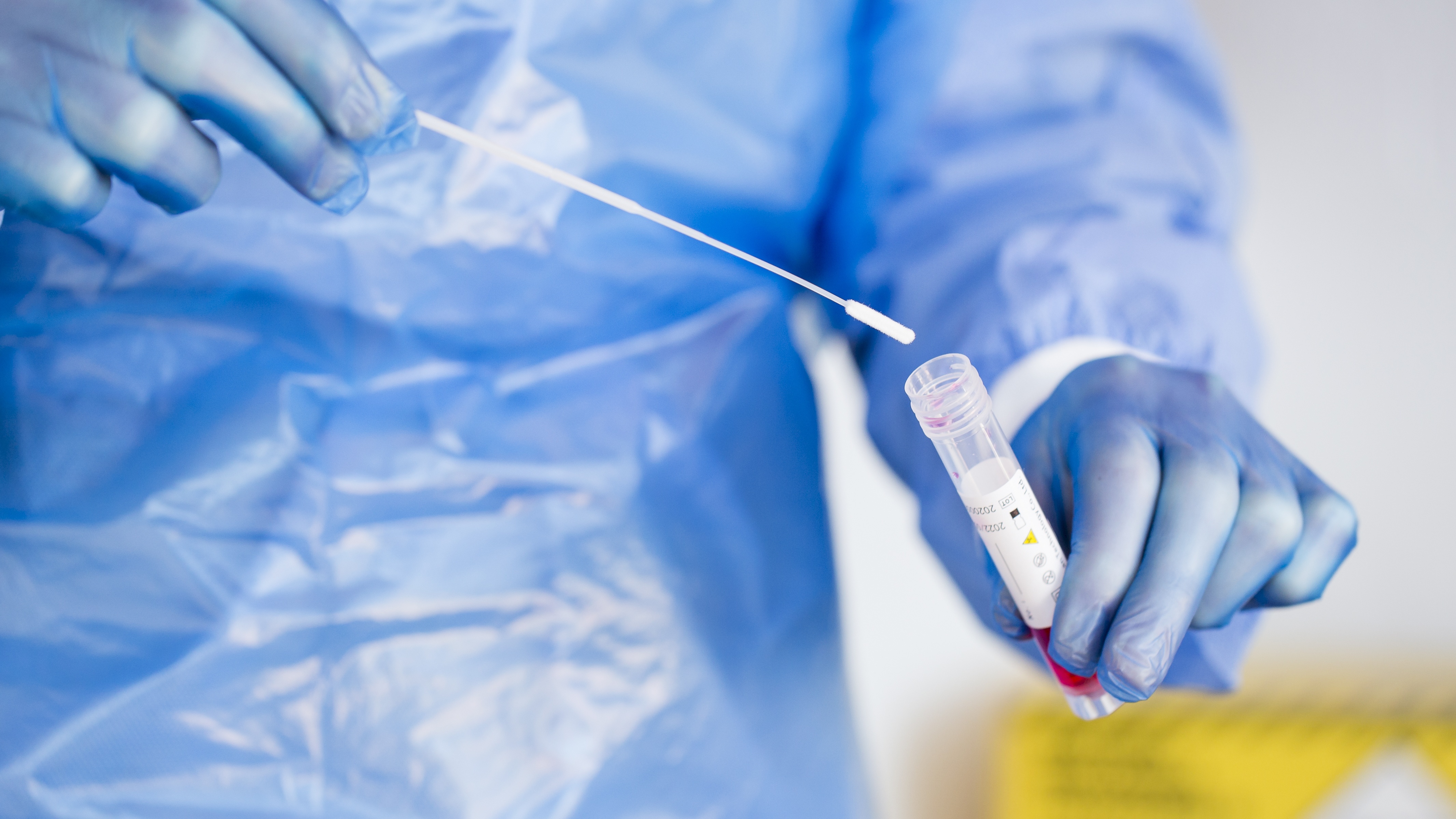What is breast implant illness?
Thousands of women have reported symptoms including chronic pain and fatigue following the plastic surgery procedure

Women should be warned about the potential risk of a condition known as breast implant illness (BII) before going under the knife, according to the British Association of Aesthetic Plastic Surgeons (BAAPS).
Tens of thousands of women worldwide have used online forums to describe their experiences after allegedly developing BII. The UK’s Medicines and Healthcare products Regulatory Agency (MHRA) alone received 1,586 Adverse Incident Reports for breast implants between 2014 and May 2019.
BII is not an official diagnosis, with “little scientific evidence” of its existence, reports the BBC. But with increasing numbers of patients claiming to have suffered life-changing health problems after getting implants, surgeons are calling for urgent research.
The Week
Escape your echo chamber. Get the facts behind the news, plus analysis from multiple perspectives.

Sign up for The Week's Free Newsletters
From our morning news briefing to a weekly Good News Newsletter, get the best of The Week delivered directly to your inbox.
From our morning news briefing to a weekly Good News Newsletter, get the best of The Week delivered directly to your inbox.
What is BII?
The term covers a very broad range of non-specific symptoms, including hair loss, fatigue, irritable bowel syndrome, autoimmune conditions such as lupus, and fibromyalgia, a long-term condition that causes pain all over the body. Other complaints range from headaches, photosensitivity and brain fog to chest pain, chills and sleep disturbance.
Patients who have experienced these symptoms have tried a variety of strategies to combat them, such as changing diets and lifestyles, but most have concluded that their breast implants are to blame, BAAPS reports.
Some women “say they returned to full health after having their implants removed”, adds the BBC.
A free daily email with the biggest news stories of the day – and the best features from TheWeek.com
Fitness instructor Naomi Macarthur told the broadcaster that she suffered the “most horrific symptoms”, including “severe pain in my stomach”, after getting implants in 2014.
“And the tiredness was like I had run a marathon and dug a million trenches and I hadn’t done anything,” said Macarthur, from Brighton. “Writing with a pen was too tiring.”
Doctors told her that the illness was unrelated to the implants. But after finding an online support group for BII, Macarthur had hers removed last year, and says her symptoms began to disappear within days.
Sometimes, however, the symptoms return, says Dr Michael Burgdorf, a surgeon at the Music City Plastic Surgery clinic in Tennessee.
“That’s tough for us as surgeons because we do see these patients that come in with these symptoms, we want to take care of them, we want to be advocates for them, and we’re on their side, so we don’t want to just dismiss these symptoms,” Burgdorf told Nashville-based network NewsChannel 5.
Is there any scientific evidence that it exists?
Not much, as yet.
“Though breast implant illness has been recognised as a condition that affects some patients with breast implants, there is currently a lack of good evidence that the breast implants are the cause,” says BAAPS.
“The variety of generalised symptoms reported have made it difficult to ascertain the true features of the illness and so an objective diagnosis can be difficult. It is believed in some patients, the cause may be psychological rather than physical. Explantation appears to work for only 50% of patients.”
Naveen Cavale, the UK’s national secretary for the International Society of Plastic Surgery, told the BBC: “As far as some of my patients are concerned, breast implant illness is a very real thing for them, and I have no reason to doubt them. But, to me, as a doctor, it makes no scientific sense.”
Medical industry watchdog MHRA says that the majority of the more than a million women who have undergone breast implant operations in Britain have not reported problems.
All the same, BAAPS and other plastic surgery associations have begun warning patients about the potential risk of BII.
“Patients need the most up-to-date information possible, with the caveat that breast implant illness is poorly understood,” says Nora Nugent, consultant plastic surgeon of BAAPS. “So it’s going to be difficult to give absolute information.”
Surgeons are hoping that an ongoing US Food and Drug Administration (FDA) investigation into BII will shed new light on the issue.
-
 Which way will Trump go on Iran?
Which way will Trump go on Iran?Today’s Big Question Diplomatic talks set to be held in Turkey on Friday, but failure to reach an agreement could have ‘terrible’ global ramifications
-
 High Court action over Cape Verde tourist deaths
High Court action over Cape Verde tourist deathsThe Explainer Holidaymakers sue TUI after gastric illness outbreaks linked to six British deaths
-
 The battle over the Irish language in Northern Ireland
The battle over the Irish language in Northern IrelandUnder the Radar Popularity is soaring across Northern Ireland, but dual-language sign policies agitate division as unionists accuse nationalists of cultural erosion
-
 The Week Unwrapped: Korean succession, terror by algorithm and German disquiet
The Week Unwrapped: Korean succession, terror by algorithm and German disquietpodcast Could a 10-year-old girl rule North Korea? Will an Isis victim upend web law? And why is Germany upset with its Oscars contender?
-
 The Week Unwrapped: Chinese chips, the Pope in Africa and podcasting
The Week Unwrapped: Chinese chips, the Pope in Africa and podcastingpodcast Is China losing the microchip war? What is the Vatican doing in South Sudan? And has the podcast tide turned?
-
 The Week Unwrapped: Sex and health, the Earth’s core and another new year
The Week Unwrapped: Sex and health, the Earth’s core and another new yearpodcast Is the NHS failing British women? What’s going on at the centre of our planet? And what’s in a date?
-
 The Week Unwrapped: Antisocial Saudis, hormone therapy and retro tech
The Week Unwrapped: Antisocial Saudis, hormone therapy and retro techpodcast Why is Saudi Arabia investing in – and banning – social networks? Will new research make life easier for trans women? And is the future of technology dumb?
-
 The Week Unwrapped: AI in court, Germans in Taiwan and ghostwriters
The Week Unwrapped: AI in court, Germans in Taiwan and ghostwriterspodcast Could artificial intelligence replace lawyers? What does Taiwan want from Germany? And are ghostwriters becoming less ghostly?
-
 The Year Unwrapped: White refugees, Aegean islands and celebrity gossip
The Year Unwrapped: White refugees, Aegean islands and celebrity gossippodcast Was 2022 the year of the white refugees? What’s really going on in the Aegean sea? And why are we so obsessed with showbiz scandals?
-
 The Week Unwrapped: Tracking apps, BTS and stay-at-home girlfriends
The Week Unwrapped: Tracking apps, BTS and stay-at-home girlfriendspodcast Does China’s U-turn mark the end of Covid-tracking apps? Has South Korean pop passed its peak? And are we really seeing the rise of the stay-at-home girlfriend?
-
 The Week Unwrapped: Africa alert, ticket touts and the words of the year
The Week Unwrapped: Africa alert, ticket touts and the words of the yearpodcast Is South Africa at risk of terrorist attacks? Why are ticket touts in such high demand? And are we really in a ‘permacrisis’?